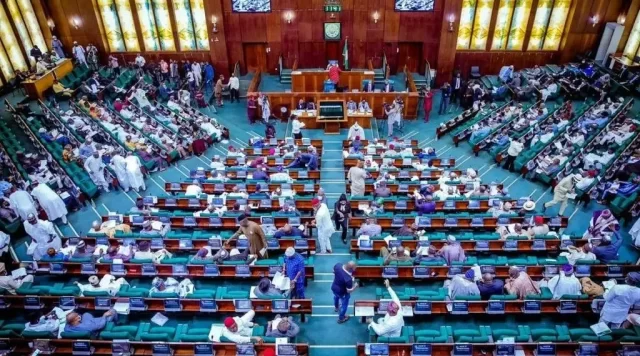
The House of Representatives Committee on the Review of the 1999 Constitution has proposed the creation of 31 additional states, that would potentially increase the total number from 36 States to 67.
The proposal, read by Deputy Speaker Benjamin Kalu, has sparked nationwide discussions about the feasibility and implications of such a major restructuring.
Breakdown of Proposed States
The South-East, which has the fewest states in Nigeria (five), is set to gain from the proposals, with bills for Etiti, Adada, Orlu, Anioma, and Aba states in progress. Other proposed states include Ijebu and Oke-Ogun (from Ogun and Oyo states), Ife-Ijesha (Osun), Tiga (North-West), and Coastal State (Ondo).
The North-Central region has suggestions for new entities like Apa-Agba and Benue Ala, while the North-East may see the emergence of states like Amana and Savannah.
- I’ll be the Last Man Standing in APC — Kebbi Governor Clarifies
- Boko Haram IED Explosion on Borno Road Kills Eight, Wounds Others
- EFCC Opens Probe of 24 Nigerian Young Men Detained in Ghana over Suspected Cybercrimes
- Former CBN Governor Emefiele Attempts To Regain Forfeited Abuja Estate; Court Dismisses the Attempt
- King Sunny Ade’s House Divided as Daughter Alleges he has Been Kidnapped; Other Family Members Deny Claim
- You Can Gather All Governors But If Nigerians Reject You, it is Over — El-Rufai Tells Tinubu
Others in South-South include; Ogoja (Cross River), Warri (Delta), Bori (Rivers), and Obolo (Akwa Ibom State).
This move follows increasing demands for political restructuring, especially from underrepresented regions that have long called for greater autonomy and administrative independence.
Legislative Hurdles and Public Reaction
For the proposal to be implemented, it must secure approval from two-thirds of the National Assembly, affected state legislatures, and local government councils.
Experts and analysts believe this could be a challenging process, given the political and economic complexities involved.
Akin Rotimi Jnr, Chairman of the House Committee on Media and Public Affairs, acknowledged that state creation is a constitutional matter requiring extensive deliberation. He assured the public that every proposal would be debated transparently to reflect the collective will of Nigerians.
Meanwhile, the proposal has received mixed reactions. While some citizens see it as a step toward greater regional representation and development, others argue that Nigeria’s economic struggles make the expansion unsustainable.
Critics fear that additional states could place further strain on the country’s resources, increasing governance costs without necessarily improving public services.
Political and Economic Implications
Supporters of the bill argue that the creation of new states will foster regional development, improve governance, and bring government closer to the people. However, skeptics warn that the move might be politically motivated and could lead to increased bureaucracy and ethnic divisions.
With the bill now advancing to further legislative discussions, all eyes are on the National Assembly to see if Nigeria is ready for one of its most significant political restructurings in decades.











